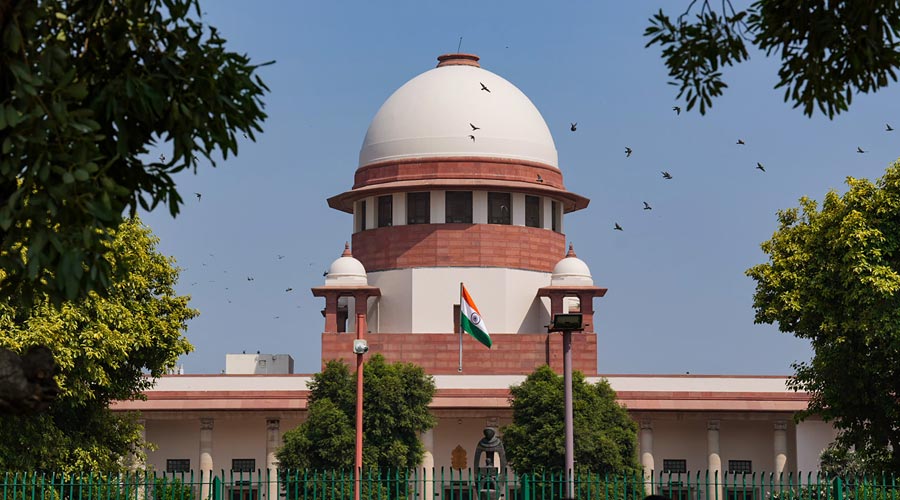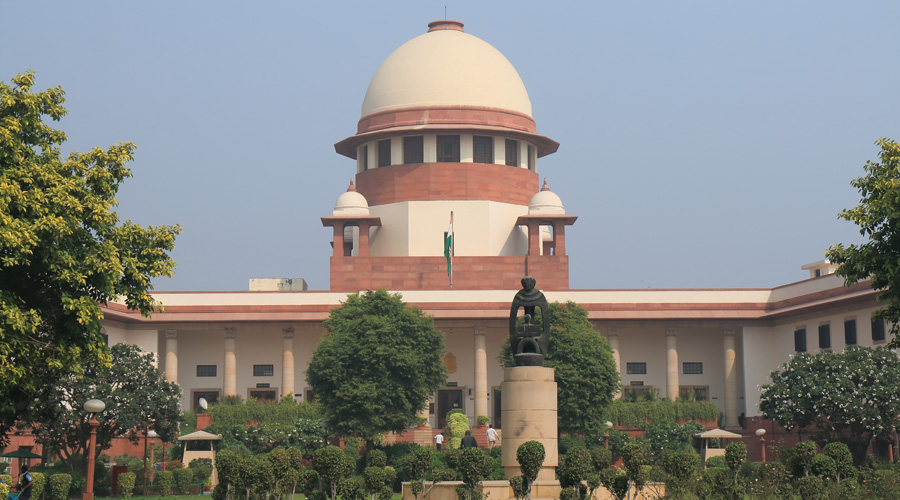The Supreme Court has agreed to examine whether a constitution bench should look into the validity of the Narendra Modi government’s 2018 electoral bonds scheme, which has run into charges of facilitating unlimited donations to political parties through anonymous sources.
The bench of Chief Justice D.Y. Chandrachud and Justice P.S. Narasimha had initially mooted a two-judge bench but decided to examine if a constitution bench, made up of at least five judges, is required after the petitioners’ lawyers underscored the significance of the issue. The bench also agreed to hear the matter on April 11, not May 2 as it had initially indicated.
Senior advocate Dushyant Dave and advocate Shadan Farasat, appearing for some of the PIL petitioners, sought reference to a constitution bench. “This issue requires hearing by a constitution bench as it impacts the democratic polity and funding of political parties,” Farasat told the bench.
CJI Chandrachud said: “We can examine it on May 2, if it requires consideration by a CB.” Dave intervened to plead that the matter should be heard in April itself to examine whether it needed to be referred to a constitution bench. “Okay, then we will hear it on April 11 to see if it needs to be heard by a constitution bench,” Justice Chandrachud said and advanced the hearing to April 11.
In January, the court had listed for hearing on March 21 the batch of petitions challenging the validity of the electoral bonds policy. But it had said the other connected issues raised by some of the petitioners for bringing political parties under the ambit of the Right to Information Act and examining the validity of the Finance Acts of 2016 and 2017 relating to funding of political parties would be taken up in April.
Besides the Association for Democratic Rights (ADR), the CPM and certain individuals have challenged the validity of the electoral bonds introduced by the NDA government through amendments to the Finance Acts of 2017 and 2016, both passed as money bills and which, according to the petitioners, have facilitated unlimited and anonymous political donations. The ADR, the main petitioner, had earlier alleged that the ruling BJP had received more than 60 per cent of the total electoral bonds issued till date. The ADR had said electoral bonds worth more than Rs 6,500 crore had been sold, with the majority of donations going to the BJP. It had said that almost 99 per cent of the bonds purchased were of denominations between Rs 10 lakh and Rs 1 crore, which suggests that not individual citizens but large corporations were purchasing them.
On October 14 last year, the Centre had defended in the Supreme Court the electoral bonds as a methodology adopted to tackle the menace of black money to ensure transparent political funding, rejecting allegations that it struck at the very root of democracy.


